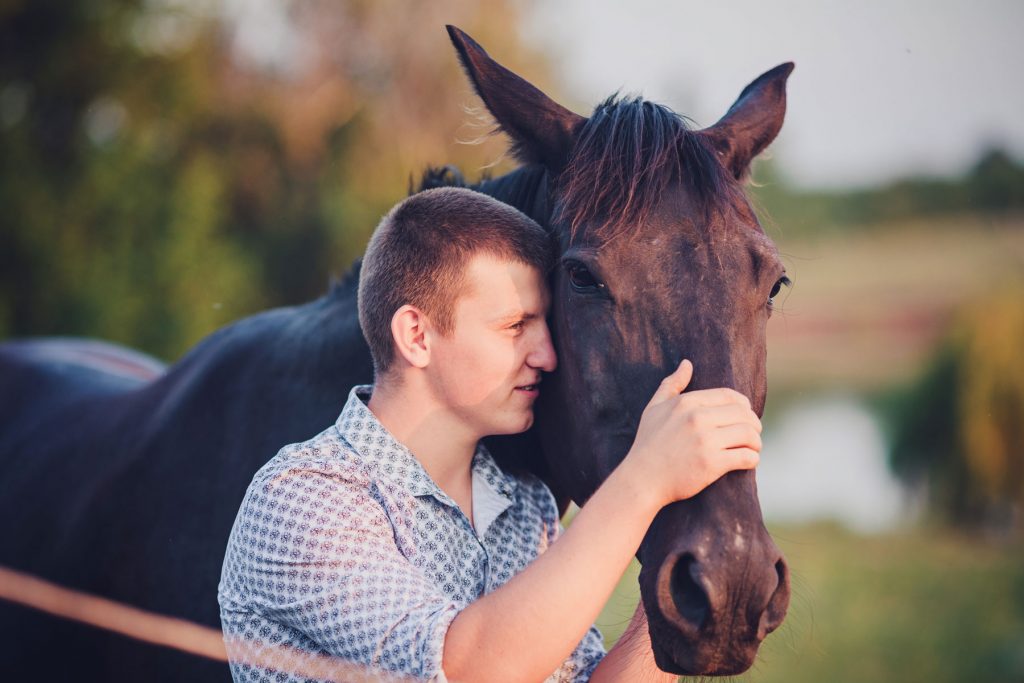Treating autism spectrum disorder (ASD) requires compassion, creativity, and a commitment to inclusion. Therapists may use a wide range of techniques to help autistic adolescents navigate the neurotypical world they live in with fewer challenges. There is growing evidence suggesting that equine therapy for autism could help teach important skills and manage interfering symptoms.
Family First offers neurodevelopmental treatment and equine therapy for adolescents at our South Florida center. We celebrate neurodiversity and help teens 12-18 become empowered to embrace their uniqueness while learning to navigate life’s challenges. Call 888.904.5947 to get help today.
Understanding Equine Therapy
Equine therapy and equine-assisted therapy methods connect people with horses in a safe, controlled setting. For autistic teens, this could include riding, grooming, leading, and caring for horses. This presents a totally new setting outside of a classroom environment that can challenge them to step out of their comfort zones and engage with horses.
Clients are guided by trained therapists in a safe space to participate in activities that help them develop necessary skills such as speech, social interaction, motor planning, and sensory integration. Teens, especially those with neurodevelopmental conditions, often find it challenging to stay focused during normal talk therapy sessions. However, in equine therapy sessions, clients are naturally interested in their interactions with the horses, making it easier for therapists to engage them and work on developing important skills.
How Equine Therapy Can Help Adolescents with Autism
One of the key aspects of equine therapy is the non-verbal communication and connection established between the teen and the horse. Horses are incredibly perceptive animals, and they respond to subtle cues from humans. This immediate, honest feedback might help autistic teens with:
- Behavioral skills – By working with a horse, adolescents can learn to regulate their emotions and communicate more effectively.
- Sensory processing – The movement of the horse provides sensory stimulation that can help students with sensory processing difficulties.
- Social skills – Horses are social animals, and interacting with them can help teens develop interpersonal skills such as empathy and understanding non-verbal cues.
- Quality of life – Equine therapy might help autistic teens be more comfortable “unmasking,” or embracing who they are and letting their personality show, allowing them to become more comfortable doing things they like.
If you are the parent of an autistic teen, you probably know how challenging it can be to empower them to embrace their differences while also helping them develop the necessary skills to succeed in a neurotypical world. Equine therapy may provide an invaluable opportunity for your child to grow and thrive while building essential life skills.
Adding Equine Therapy to Treatment Plans
Working with horses likely won’t be the only approach a therapist will use when working with autistic teens. Instead, it’s an integral part of a more comprehensive treatment plan. Equine therapy can complement other therapies like occupational therapy and speech therapy, which may focus on different goals, such as fine motor skills or language development.
Broader cognitive therapies may also be used to increase self-awareness and help teens better understand their behaviors. By including equine therapy in the treatment plan, therapists can create a well-rounded approach to addressing the unique needs of each individual.
Contact Family First Adolescent Services Now
We offer equine therapy and neurodevelopmental treatment for teens 12-18 at our treatment center in Palm Beach Gardens, FL. Boys can participate in our residential program, where they get 24/7 support from a team of mental health professionals. Girls and boys can get support in our day program, which allows them to return home after treatment every evening.
Equine therapy is an exciting, engaging method for many teens, but we’ll never pressure your child to participate. We’ll work closely with your teen and family to develop a personalized treatment plan that meets their individual needs. Contact us online or by calling 888.904.5947 to get started today.

